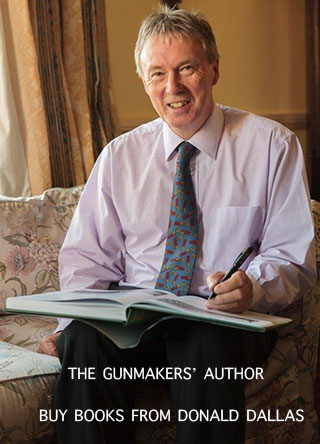The Health and Safety Executive today published its proposals for restrictions on the use of lead in ammunition. We re-print the conclusions of the 200+ page report below:
Conclusions. For all the uses of lead included in this dossier, the Agency concludes that the use of lead shot and bullets pose a risk to the environment and/or human health that is not adequately controlled and needs to be addressed at a GB level.
Hunting. The Agency concludes that the use of lead ammunition for shooting live quarry presents a risk to both the environment (particularly birds) and human health (via secondary exposure through the consumption of lead-shot game) that is not adequately controlled and needs to be addressed. No risk management measures were identified that would adequately address the risks to either the environment or human health to allow continued use.
Lead shot is already banned for use over wetlands in GB, so alternatives are already available on the GB market, especially steel shot. Some shooters have already made the transition to these, and a number of UK shooting and rural organisations have voluntarily committed to using alternatives to lead shot for the hunting of live quarry by 2025, whilst some supermarkets have also committed to only selling game meat from animals killed using non-lead ammunition. Alternative larger calibre bullets are already available, but alternative small calibre bullets are not yet widely available.
There is a move to lead-free ammunition, with the in-progress EU restriction also proposing a ban on lead bullets for hunting. It is therefore likely that more alternatives will be developed and brought to market over time, and that prices for non-lead bullets will eventually decrease. A ban on the use of lead ammunition for hunting is therefore considered practical, with appropriate transition periods. As lead-free alternatives are already available for lead shot and large calibre bullets, a transition period of 18 months is proposed. A longer transition period of 5 years is proposed for small calibre bullets (including air rifles).
A ban on the use of lead ammunition for hunting is therefore considered practical...
Banning the use of all forms of lead ammunition for hunting will remove the risks from this source of lead posed to humans via the consumption of game meat. Banning lead shot would prevent the primary poisoning of many bird species via ingestion of lead shot, and together with a ban on the use of lead bullets for hunting, raptor and scavenging species would also be protected from secondary poisoning. Compliance with the existing lead shot bans over wetlands is thought to be low, so a total ban on the sale and use of lead shot would also tackle this issue.
A ban on the placing on the market and use of lead ammunition for hunting purposes is monitorable and enforceable in principle, as inspections can be made at the point of sale. It would be a legally enforceable version of the shooting industry’s own commitment to phase out lead shot for this purpose, though extended to include bullets. Game carcasses could also be monitored for lead shot, bullets or bullet fragments and inspections made of organised hunts.
Some other options (such as mandatory product labelling, training for hunters and potentially a buy-back scheme) could provide useful supplementary options to support the restriction, especially since lead bullets in particular would still be readily available for sports uses (see below).
The proposal is estimated to reduce the amount of lead released in shot and bullets by up to around 75 % over a 20-year period (compared with the baseline estimate of 114,420 and 290 tonnes for shot and bullets, respectively). The figures for bullets in particular are uncertain. The socio-economic analysis shows that even with a very partial monetisation of the benefits from this restriction, the costs of the restriction are very close to the benefits.

Sports Shooting
Lead Shot. The Agency has concluded that the use of lead shot for sports shooting presents a risk to the environment (particularly birds, soil, vegetation and livestock) that is not adequately controlled and needs to be addressed. No risk management measures were identified that would adequately address the risks to the environment to allow continued use.
Banning the use of lead shot for sports shooting will prevent the primary poisoning of many bird species via ingestion of lead shot, and therefore also protect raptor and scavenging species from secondary poisoning. In addition, a ban would prevent the build-up of lead shot in areas of high use, avoiding an increase in lead concentrations in soil and vegetation over time and reducing the risks posed to grazing livestock (and other animals).
Alternatives to lead shot are already available. A ban on the placing on the market and use of lead shot is therefore considered practical, monitorable and enforceable in principle, as inspections can be made at the point of sale. Sports shooting ranges can also be checked to ensure that they have appropriate measures in place to prevent the use of lead shot at their sites.
carcasses could also be monitored for lead shot, bullets or bullet fragments
A complete ban would be the most effective risk management option. However, the Agency is aware that the use of lead shot is required for national and international competitions in some shooting disciplines. To enable GB athletes to continue to train and compete, an optional derogation for a licensing system allowing the relevant athletes to continue training, and suppliers to continue sales to these authorised athletes, could be considered.
This optional derogation would also include a licensing system for the ranges where this training takes place to ensure that the risks to the environment from this activity are minimised by the use of lead collection systems. This optional derogation would not be fully effective at removing all the environmental risks identified. The feasibility of any licensing system needs further consideration.
The complete ban is estimated to reduce the amount of lead released as shot by up to around 95 % over a 20-year period (compared with the baseline estimate of 33,600 tonnes), based on a transition period of 5 years. The optional derogation is estimated to reduce the amount of lead released as shot by around 70 % over a 20- year period (compared with the baseline estimate of 33,600 tonnes). The socioeconomic analysis shows the total ban will be cost-effective, but more information is required on the costs of risk management measures in order to assess the optional derogation.

Lead Bullets. Alternatives to large calibre and small calibre bullets with adequate performance are not yet widely available for sports shooting. The Agency has concluded that the use of lead bullets for sports shooting presents a risk to the environment (particularly soil and vegetation). A complete ban would be the most effective risk management option. However, the Agency is aware that the use of lead bullets is required for national and international competitions in some shooting disciplines.
Since bullets are generally used at specific shooting ranges, the Agency considers that a licensing system for suppliers and athletes is not necessary. Instead, the risk can be adequately controlled by the use of appropriate risk management measures at shooting ranges, as recommended in the EU REACH registration dossier for metallic lead to ensure safe use (the Agency anticipates that these will also be included in the full UK REACH registration dossier when it is submitted in due course).
To ensure compliance, the proposal is to restrict the use of lead bullets for sports shooting, with a derogation if the sports shooting range can demonstrate appropriate containment and collection of the bullets and the site is not also used for agricultural purposes. The proposed derogation would allow continued use of lead bullets by all sportsmen and women, so long as this occurs at licenced sites that have appropriate risk management measures in place.
This proposal is considered to be enforceable and monitorable in principle as shooting ranges can be inspected to confirm the presence of the risk management measures and environmental monitoring of lead could give further data to demonstrate compliance. As for lead shot, the feasibility of any licensing approach needs to be examined further.
A transition period of 18 months is considered appropriate for sports shooting with the large calibre bullets and 5 years for the small calibre bullets, due to the availability of substitutes.
The proposal is estimated to reduce the amount of lead released in bullets by up to around 67% over a 20-year period (compared with the baseline estimate of 1,440 tonnes). Initial estimation of the costs show that the proposal would be cost- effective, but more information on releases by calibre is needed for a more robust estimate.
BASC Response
The British Association for Shooting &Conservation made the following statement about the news:
“The proposed restrictions would see a ban on the sale and use of many forms of lead ammunition outdoors in England, Scotland and Wales. Limited exemptions have been outlined in the dossier for the continued use of lead ammunition in some licensed settings.
“The wide-ranging proposed restrictions, which closely reflect EU REACH proposals, would apply to shotgun, rifle and airgun ammunition. The dossier will now undergo a high level of scrutiny and BASC will be playing a full role in that process.
“Through a six-month consultation also launched today by the HSE, we will challenge proposed restrictions where there are no viable alternatives to lead, where socio-economic factors mean a transition isn’t appropriate, and where lead can continue to be used in settings that present negligible or no risk.
particularly alarming in light of current global supply chain issues.
“We have significant concerns about the short timeframes outlined in the dossier for transition away from the use of lead ammunition, which could be as little as 18 months. This is particularly alarming in light of current global supply chain issues. We will fight for timelines that are realistic and guided by the sector to ensure that the range of lead-free products and their supply can meet market demands.
“BASC will be engaging with the regulator to ensure that proposals are robustly scrutinised and that any future restrictions are based on evidence and proportionate to identified risks. We will not accept disproportionate restrictions that unfairly disadvantage shooting activities.
“Shooting is worth £2 billion to the UK economy, employing the equivalent of 74,000 full time jobs. The proposed restrictions stand to impact all 600,000 live quarry shooters and the estimated four million target and air rifle shooters in Great Britain. The regulator must be able to show its working and acknowledge the monumental challenge that restrictions will bring to the shooting community and market.
“BASC remains fully committed to the five-year voluntary transition away from using lead shot for live quarry shooting that has made such significant progress under challenging conditions.
“Given the severity of the proposed restrictions, the voluntary transition has afforded the sector a head-start in the move away from lead ammunition.”
Published by Vintage Guns Ltd on (modified )




